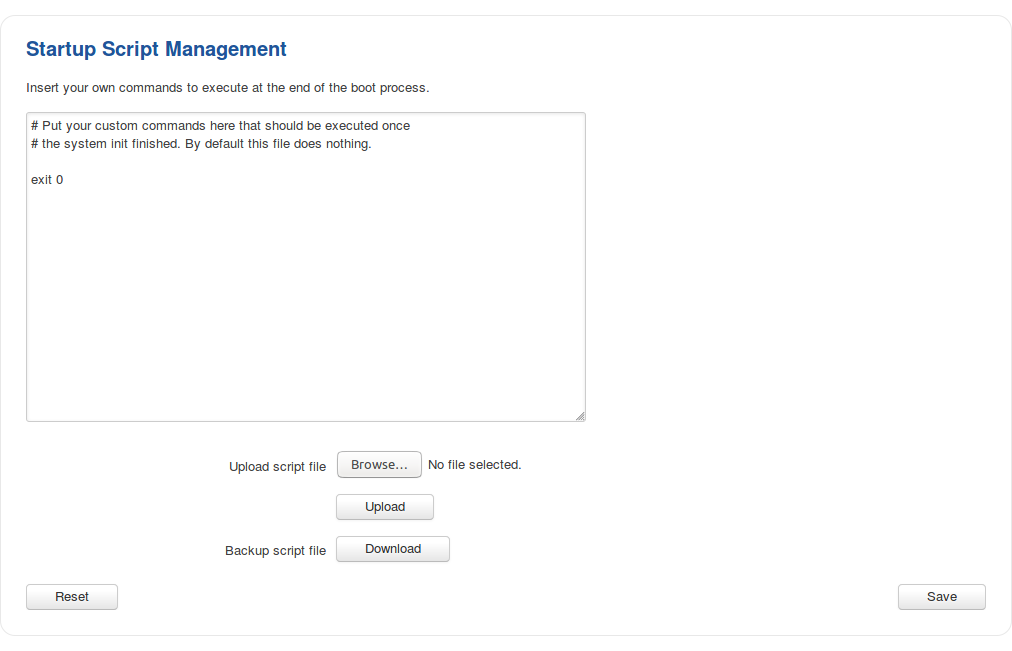Template:Networking rut manual user scripts: Difference between revisions
No edit summary |
Gytispieze (talk | contribs) No edit summary |
||
| (2 intermediate revisions by 2 users not shown) | |||
| Line 1: | Line 1: | ||
{{Template: Networking_rutos_manual_fw_disclosure | {{Template: Networking_rutos_manual_fw_disclosure | ||
| fw_version = {{#switch: {{{series}}} | | fw_version = {{#switch: {{{series}}} | ||
| RUT2XX = {{{series}}}_R_00.01.14 | | RUT2XX = {{{series}}}_R_00.01.14.3 | ||
| RUT850 = {{{series}}}_R_00.01.04 | | RUT850 = {{{series}}}_R_00.01.04 | ||
| RUT9XX = {{{series}}}_R_00.06. | | RUT9XX = {{{series}}}_R_00.06.08.2}} | ||
}} | }} | ||
__TOC__ | __TOC__ | ||
Revision as of 13:46, 19 August 2021
Template:Networking rutos manual fw disclosure
Summary
The User Scripts function allows users to write their own shell scripts that will be executed during the router's booting process.
This chapter of the user manual provides an overview of the User Scripts page for {{{name}}} devices.
Startup script management
The startup script management section shows the contents of the /etc/rc.local file and allows the user to edit it. Scripts written in this file are executed at the end of the device's start up process. You can also execute written scripts via a command line interface with the following command:
sh /etc/rc.local
The figure below is an example of the startup script management section:
[[Category:{{{name}}} System section]]

